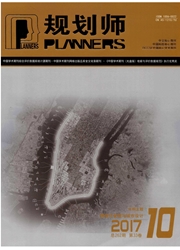
欢迎您!东篱公司
退出

 中文摘要:
中文摘要:
文章在构筑居民健身场所公平性概念框架的基础上,以广州市海珠区为例,采用问卷调查、深度访谈及GIS空间分析方法对城市居民健身场所布局公平性存在的不足进行研究,并进一步对其内在成因和外部制约因素进行分析,提出城市居民健身场所公平性的优化对策:协调不同政府部门间的关系,多渠道筹集建设及维护资金;将居民健身场所规划纳入现有规划体系,注重公众参与等,以期为建立符合地方实际的公共体育设施服务标准提供科学的支撑,并对国内其他城市社区健身场所的布局优化提供借鉴。
 英文摘要:
英文摘要:
The paper establishes a conceptual framework of spatial equality of fi tness facilities. By questionnaire survey, interview, and GIS spatial analysis, the paper studies the problems of fi tness facilities distribution in Haizhu district, Guangzhou. The paper proposes improvement measures including administrative departmental coordination, multiple funding, planning compilation, and public participation. The study provides a rational support for local public sports facilities, and a reference for other cities.
 同期刊论文项目
同期刊论文项目
 同项目期刊论文
同项目期刊论文
 期刊信息
期刊信息
